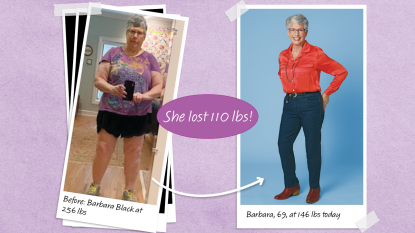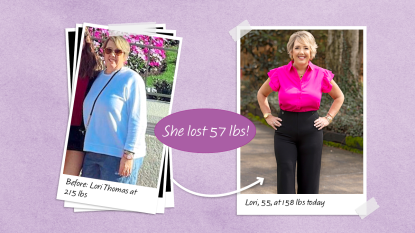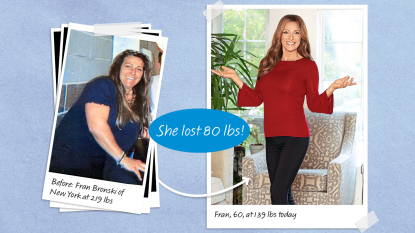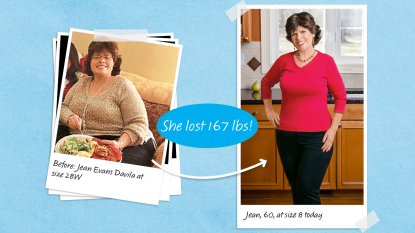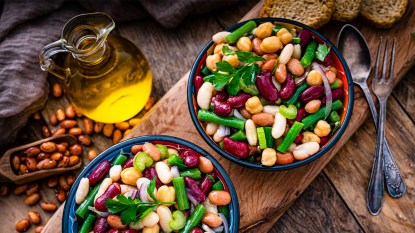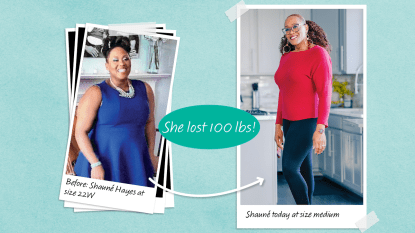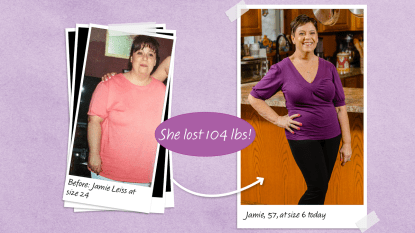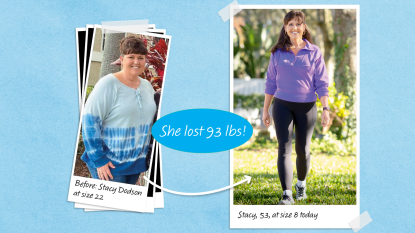Want to Lose the Weight? Follow These Meal Planning Tips from an Expert
A nutrition coach weighs in.

Let’s face it — weight loss is no walk in the park. Making healthy changes to your diet is hard enough as it is, but layer on top of it the stress of working and/or being a mom, and it’s even harder. On your busiest days, it’s easy to indulge when you don’t have a solid plan in place for creating healthy meals you can grab when hunger strikes. With this in mind, we decided to consult an expert on how best to set ourselves up for success with meal planning.
According to Brianna Bernard, athlete and nutrition coach at Isopure, the best thing you can do for yourself if you’re embarking on a weight loss journey is to start meal planning. “Meal planning saves time, energy, and money throughout the week, and helps you make healthier choices at work, home, and on-the-go,” she says.
Time is of the essence, and meal planning gives you the opportunity to get some of yours back. “Having a designated time to shop and cook all of your meals for the week means no cooking during the week,” Bernard says. “You’re always just minutes away from a healthy meal!” And you know what that means — planning ahead and having everything prepped means there’s less of a chance you’ll cheat!
Also important: meal planning can help you save some serious cash. “I used to be a person who would over-buy at the grocery store, and most of my produce would expire or grow mold before I had a chance to prepare or eat it, ” remembers Bernard. “With meal planning, I buy exactly the right amount of food for the week and I no longer have to throw out old food that went bad before I got to it. Also, when I cook at home, I save so much money verses the expenses of eating out. By the time I pay for parking, an appetizer, meal, dessert, drinks and a tip, I can easily spend $100 on dinner.” No more tossing rotten veggies out in shame and spending a buck on dinner outings? We’ll take it.
Most importantly, when you plan and prepare your own meals, you know exactly what you’re eating. When you buy food from restaurants, you don’t always know what types of oils, preservatives, or extra hidden ingredients are lurking in that food and contributing to weight gain. When you’re doing it all yourself, you know exactly what you’re putting into your body.
As for best meal planning practices, Bernard says that being organized is key, and it doesn’t take much at all to plan yourself a weeks worth of healthy meals. “I use an Excel spreadsheet that lists all of the names of my meals (breakfast, morning snack, lunch, afternoon snack, dinner, etc.) and what and how much I will eat for each meal,” Bernard shares. “For example, for lunch I might put 4 oz. salmon and 1 cup roasted Brussels sprouts. For breakfast I might put ½ cup oatmeal with 1 scoop Isopure Dutch Chocolate protein powder ($44.99, Amazon) and 2 Tbsp. of powdered peanut butter.”
You can follow Bernards example and plan your meals out once a week at the very beginning of the week or on Sundays. Meal planning also makes grocery trips easier and meal prepping a breeze. Each week, set aside a day for planning, shopping, and cooking so you’re ready for the week ahead.
You don’t have to make everything in one day if that feels like too much, but you can certainly prepare dinners for cooking. Making things like “foil packs” with seasoned fish or chicken with veggies that you can just pop into the oven when you get off work is super helpful. Before you know it, you’ll be shedding pounds — and your bank account will thank you!


